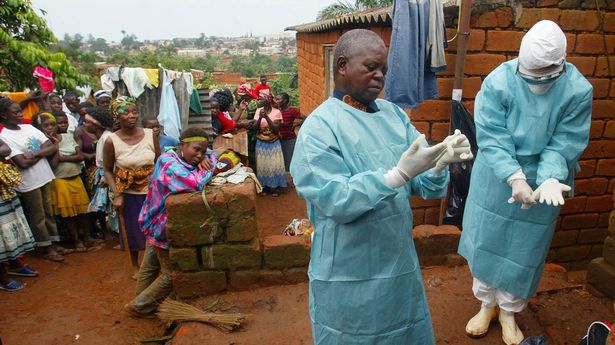Victim of Marburg virus that makes you ‘bleed to death’ may have spread it to 155 people – World News
Marburg virus, a highly infectious fever with similarities to Ebola, has been detected in Guinea, prompting authorities to monitor more than 100 people thought to have been in contact with the victim

Image: Reuters)
A confirmed victim of a highly infectious Ebola-like virus that makes people “bleed to death” may have spread the disease to 155 people, a World Health Organisation official warned today.
Health authorities in Guinea are monitoring the contacts to see if they have been infected with Marburg disease, a highly infectious haemorrhagic fever.
The Marburg case, the first of its kind in West Africa, was confirmed in Gueckedou in southeastern Guinea, the origin point of 2014-2016 West Africa Ebola outbreak.
The region also saw a brief resurgence of Ebola this year.
Officials say the virus is transferred to humans through the hunting, cooking and eating of “bushmeat”.
Hunters kill bats, non-human primates (monkeys), rats and antelopes for consumption, but the processes used to make them edible, such as smoking, drying and curing, often fail to introduce high enough temperatures to kill pathogens.
(
Image:
Chris Bjornberg)
Georges Ki-Zerbo, the WHO country head in Guinea, said Marburg had been circulating in animals, particularly bats, in southern Guinea and neighbouring Sierra Leone and Liberia.
“There is no known secondary case… The contacts have been traced, and 155 people are under observation for three weeks,” Ki-Zerbo said in an interview.
“It is active surveillance. The contacts are kept at home, isolated from other members of the family. They are visited every day to check on potential symptoms.”
Marburg and Ebola are closely related and transmission between humans is usually through contact with blood or other bodily fluids.
(
Image:
Reuters)
Guinea was declared free of Ebola two months ago, following an outbreak that killed 12 people.
Marburg fatality rates in past outbreaks have varied from 24 per cent to 88 per cent of those infected.
But Ki-Zerbo said Guinea was better prepared to handle an outbreak than it had been when Ebola struck in 2014. The discovery of the Marburg case also indicated improved ability to detect such infections.
“Guinea has built a robust health security system since the last Ebola outbreak in 2014 to 2016,” he said, pointing to the use of rapid response teams, disease detectives, epidemiologists and social anthropologists, and better coordination with neighbouring countries.
“Globally, the approach to combating Marburg would not be different from Ebola,” he said. “The only difference is that there is no vaccine or drug specifically directed to the virus.
“Only supportive care is available.”


